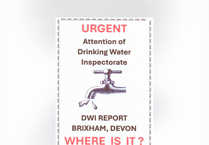IN the legend of King Cnut, he commanded the waves to stop rolling in. They didn’t obey him – time and tide stop for no man as the saying goes, writes columnist Alison Eden.
Coming as it does in the wake of so many government cuts, the planned closure of railway station ticket offices may feel as inevitable as the turning tide but it is a politician-made decision and one, I think, which we must strongly resist.
The rationale for closure is, of course, cost. A high proportion of rail users buy tickets online, have mobile phones to display their tickets and internet access. Paying staff to help customers isn’t, say the railway operators, financially worth it.
Here lurks the ghastly, ghostly presence of the government official who knows the cost of everything and the value of nothing. Once upon a time, this country had what was described as public services.
Literally, services for members of the public who need, as we all do, education, health, transport, water and energy. (Oh and post that’s delivered daily to every door in the land – remember that?)
It didn’t matter if a bus was only half empty or a quarter empty on some journeys because having a reliable service at all times was the priority. In the late 70s the political elite decided that our country should be run like a business and the privatisation of essential public services began.
With that switch in emphasis, making a profit for shareholders became the goal and delivering a service along the way just a means to a financial end. Has this belief system worked? Not for consumers.
Travelling by rail costs more than driving and if you’re going a few hundred miles, flying can be a cheaper option (for you not the environment!).
We have nothing like the coverage and frequency of bus services and railway options that we need especially given how much longer we’re all living with all the complex healthcare needs that involves.
If you develop cataracts, glaucoma or macular degeneration etc, you’re not going to be able to drive. Public transport also provides value in community – sometimes the only person an elderly resident may speak to is on the bus!
Closing ticket offices is wrong because it disadvantages the most vulnerable people in our society. How is somebody who does not have a mobile phone, internet access or functioning sight supposed to get a ticket? Using a machine isn’t going to be possible!
What about young people with learning difficulties who want to live as independent lives as much as possible? Who is going to assist with the massively complicated process of buying the most economic tickets?
People staffing ticket offices have on several occasions helped me buy a fare that cost half what it showed online. Through a complicated process of buying different tickets for a journey at different rates because of the changing time of day along the route, railway staff have saved me hundreds of pounds. It’s just not possible online.
This move to close ticket offices across the country was announced by the ‘Rail Delivery Group’. They claim that staff from the ticket offices will be moved to other roles but, unsurprisingly, there are no guarantees. If you’re worried about the prospect of unstaffed stations in Devon, concerned about vulnerable people losing out (again), take part in a consultation that GWR are running.
Now is the time to speak - for more information on how to take part in the GWR consultation, click here.



-Beaver-Trust.jpeg?width=209&height=140&crop=209:145,smart&quality=75)

Comments
This article has no comments yet. Be the first to leave a comment.